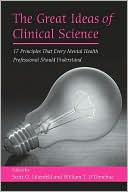Category Books
- Fiction Books & Literature
- Graphic Novels
- Horror
- Mystery & Crime
- Poetry
- Romance Books
- Science Fiction & Fantasy
- Thrillers
- Westerns
- Ages 0-2
- Ages 3-5
- Ages 6-8
- Ages 9-12
- Teens
- Children's Books
- African Americans
- Antiques & Collectibles
- Art, Architecture & Photography
- Bibles & Bible Studies
- Biography
- Business Books
- Christianity
- Computer Books & Technology Books
- Cookbooks, Food & Wine
- Crafts & Hobbies Books
- Education & Teaching
- Engineering
- Entertainment
- Foreign Languages
- Game Books
- Gay & Lesbian
- Health Books, Diet & Fitness Books
- History
- Home & Garden
- Humor Books
- Judaism & Judaica
- Law
- Medical Books
- New Age & Spirituality
- Nonfiction
- Parenting & Family
- Pets
- Philosophy
- Political Books & Current Events Books
- Psychology & Psychotherapy
- Reference
- Religion Books
- Science & Nature
- Self Improvement
- Sex & Relationships
- Social Sciences
- Sports & Adventure
- Study Guides & Test Prep
- Travel
- True Crime
- Weddings
- Women's Studies
The Great Ideas of Clinical Science » (1st Edition)

Authors: Scott O. Lilienfeld, William T. O'Donohue, William T. O'Donohue
ISBN-13: 9780415950381, ISBN-10: 0415950384
Format: Hardcover
Publisher: Taylor & Francis, Inc.
Date Published: September 2006
Edition: 1st Edition
Author Biography: Scott O. Lilienfeld
Scott O. Lilienfeld, Ph.D., is associate professor in the Department of Psychology at Emory University and a past president of the Society for a Science of Clinical Psychology. He is founder and editor-in-chief of The Scientific Review of Mental Health Practice, and sits on the editorial boards of nine other publications, including Clinical Psychology Review, Psychological Assessment, and Journal of Social and Clinical Psychology.
William T. O'Donohue, Ph.D., is a full professor in the Department of Psychology and honorary associate professor of philosophy, at the University of Nevada at Reno. He is director of the university's Victims of Crimes Treatment Center, and also its Sexual Assault Prevention and Counseling Services.
Book Synopsis
The idea that there is a fundamental rift between researchers and practitioners should not come as a surprise to anyone familiar with the current literature, trends, and general feelings in the field of clinical psychology. Central to this scientist-practitioner gap is an underlying disagreement over the nature of knowledge - namely that while some individuals point to research studies as the foundation of truth, others argue that clinical experience offers a more adequate understanding of the causes, assessment, and treatment of mental illness.
The Great Ideas of Clinical Science is an ambitious attempt to dig beneath these fundamental differences, and reintroduce the reader to unifying principles often overlooked by students and professionals alike. The editors have identified 17 such universals, and have pulled together a group of the most prolific minds in the field to present the philosophical, methodological, and conceptual ideas that define the state of the field. Each chapter focuses on practical as well as conceptual points, offering valuable insight to practicing clinicians, researchers, and teachers of any level of experience. Written for student, practitioner, researcher, and educated layperson, this integrative volume aims to facilitate communication among all mental health professionals and to narrow the scientist-practitioner gap.
Table of Contents
Foreword ix
About the Editors xiii
Contributors xv
Introduction xxiii
How to Think Clearly About Clinical Science 1
Science Is an Essential Safeguard Against Human Error William T. O'Donohue Scott O. Lilienfeld Katherine A. Fowler 3
The Clinician as Subject: Practitioners Are Prone to the Same Judgment Errors as Everyone Else John Ruscio 29
Decision Research Can Increase the Accuracy of Clinical Judgment and Thereby Improve Patient Care David Faust 49
Psychometrics: Better Measurement Makes Better Clinicians James M. Wood Howard N. Garb M. Teresa Nezworski 77
Classification Provides an Essential Basis for Organizing Mental Disorders Roger K. Blashfield Danny R. Burgess 93
Psychotherapy Outcome Can Be Studied Scientifically Gordon L. Paul 119
Clinical Case Studies Are Important in the Science and Practice of Psychotherapy Gerald C. Davison Arnold A. Lazarus 149
Treatment and Assessment Take Place in an Economic Context, Always Nicholas A. Cummings 163
The Great Paradigms of Clinical Science 185
Evolution-Based Learning Mechanisms Can Contribute to Both Adaptive and Problematic Behavior William Timberlake 187
Behavior Genetic Approaches Are Integral for Understanding the Etiology of Psychopathology Irwin D. Waldman 219
Evolutionary Theory Provides a Framework for Understanding Abnormal Behavior Richard J. Siegert Tony Ward 243
Personality Traits Are Essential for a Complete Clinical Science Allan R. Harkness 263
The Cognitive Neuroscience Perspective Allows Us to Understand Abnormal Behavior at Multiple Levels of Complexity Stephen S. Llardi Kevin Rand Leslie Karwoski 291
The Great Crosscutting Perspectives of Clinical Science 311
Early Developmental Processes Inform the Study of Mental Disorders Erin C. Tully Sherryl H. Goodman 313
Mental and Physical Health Influence Each Other Neil Schneiderman Scott D. Siegel 329
Some Forms of Psychopathology Are Partly Socially Constructed Steven Jay Lynn Abigail Matthews John C. Williams Michael N. Hallquist Scott O. Lilienfeld 347
Cultural Factors Influence the Expression of Psychopathology Yulia E. Chentsova-Dutton Jeanne L. Tsai 375
The Great Ideas of Clinical Science Redux: Revisiting Our Intellectual Roots Scott O. Lilienfeld William T. O'Donohue 397
Index 401
Subjects
 Psychology
Psychology  Clinical Psychology
Clinical PsychologyPsychology & Psychotherapy
 Clinical Psychology
Clinical Psychology  Clinical Psychology - General & Miscellaneous
Clinical Psychology - General & MiscellaneousPsychology & Psychotherapy
 Psychological Disorders
Psychological Disorders  Clinical Psychology - General & Miscellaneous
Clinical Psychology - General & MiscellaneousMedical Books
 Psychology & Psychotherapy
Psychology & Psychotherapy  Clinical Psychology
Clinical PsychologyMedical Books
 Psychology & Psychotherapy
Psychology & Psychotherapy  Psychological Disorders
Psychological Disorders
